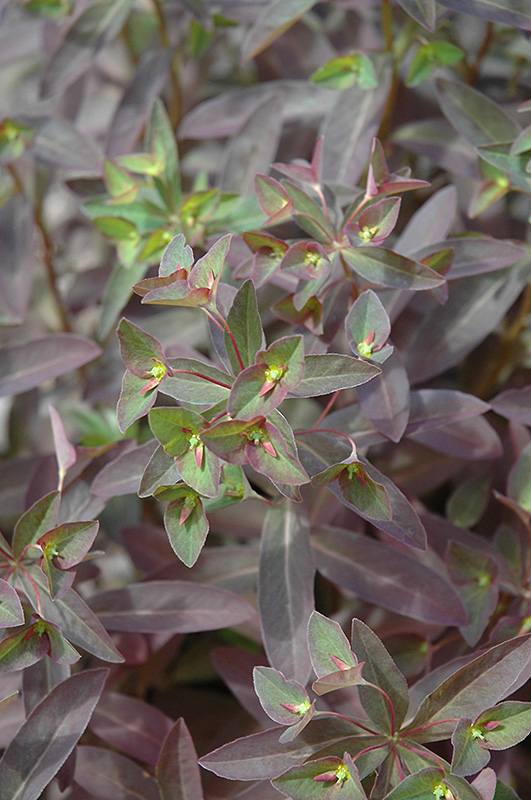Chamaeleon Spurge
Euphorbia dulcis 'Chamaeleon'
Height: 18 inches
Spread: 24 inches
Sunlight:
![]()
Hardiness Zone: 4a
Other Names: Purple Spurge, Chamaeleon Spurge
Brand: Ball
Description:
A drought tolerant, mounded variety that shows off stunning, deep purple to burgundy foliage during the summer months and well into the fall; small chartreuse flowers sit atop stems creating a lovely pop of color; excellent for use in borders or beds
Ornamental Features
Chamaeleon Spurge has masses of beautiful cymes of lime green flowers with purple overtones and chartreuse bracts at the ends of the stems from mid to late spring, which are most effective when planted in groupings. Its attractive narrow leaves emerge burgundy in spring, turning deep purple in color. As an added bonus, the foliage turns a gorgeous red in the fall.
Landscape Attributes
Chamaeleon Spurge is an herbaceous perennial with a mounded form. Its medium texture blends into the garden, but can always be balanced by a couple of finer or coarser plants for an effective composition.
This plant will require occasional maintenance and upkeep, and should only be pruned after flowering to avoid removing any of the current season's flowers. Deer don't particularly care for this plant and will usually leave it alone in favor of tastier treats. Gardeners should be aware of the following characteristic(s) that may warrant special consideration;
- Self-Seeding
Chamaeleon Spurge is recommended for the following landscape applications;
- Mass Planting
- Border Edging
- General Garden Use
Planting & Growing
Chamaeleon Spurge will grow to be about 18 inches tall at maturity, with a spread of 24 inches. It grows at a medium rate, and under ideal conditions can be expected to live for approximately 8 years. As an herbaceous perennial, this plant will usually die back to the crown each winter, and will regrow from the base each spring. Be careful not to disturb the crown in late winter when it may not be readily seen!
This plant should be grown in a location with partial shade or which is shaded from the hot afternoon sun. It is very adaptable to both dry and moist growing conditions, but will not tolerate any standing water. It is not particular as to soil type or pH. It is highly tolerant of urban pollution and will even thrive in inner city environments. This is a selected variety of a species not originally from North America, and parts of it are known to be toxic to humans and animals, so care should be exercised in planting it around children and pets.
